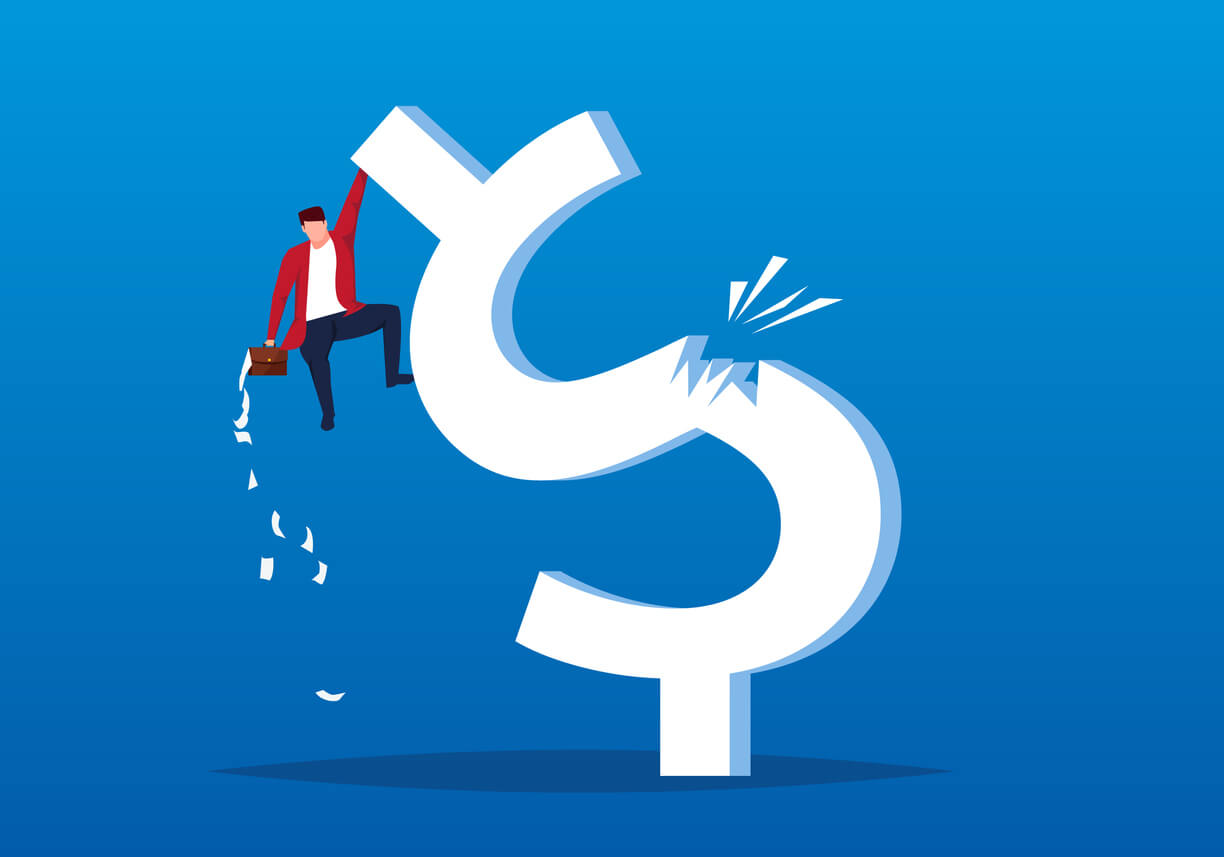
Common Business Banking Mistakes and How to Avoid Them
Every small business owner and entrepreneur needs to set up a business bank account. Sounds simple, but unfortunately there are some common mistakes that can throw a spanner in the works. Find out what these mistakes are so you can avoid doing the same (or fix them if you’ve already made them!).
What is a business bank account?
Before we go into the common pitfalls to avoid, you’ll need to know what a business bank account is. A business bank account differs from your personal bank account in that it is a place purely to keep your company’s money. Any money that comes into or out of a business should be run through a business bank account.
Benefits of a business bank account:
If you aren’t yet convinced that you should open a business checking account then we’re here to show you how opening a business bank account is actually a pretty damn good idea.
Benefits of a small business bank account:
- Organization – you’ll be able to keep all of your business records neatly organized allowing you to easily file your taxes accurately
- Accurate tax deductions – mixing your personal and business account can lead to a big mess when it comes to filing taxes and you could miss out on saving money and even face IRS penalties (for those in the US) and ATO penalties (for those in Australia)
- Start accepting credit cards – having a business checking account will open you to a whole new pool of customers, that is, those that want to use credit cards. You can’t accept credit card payments to a personal bank account, thus limiting the number of customers you can reach!
- Include multiple account signers – with a business checking account you’ll be able to allow other people (such as trustworthy employees) to run admin work so that you can focus on other areas of your business.
- Increase professionalism – who doesn’t want their business to look more professional?
Need a way to better manage your business’s transactions, invoice and general accounting? Quickbooks is a top accounting service provider that will take the headache out of your business accounting! Find out the top 3 accounting software for small businesses here.
How to open a small business bank account
When opening a small business bank account, the first thing you’ll need to do is to choose the right bank (see point one below!).
You’ll then need to prepare the documents needed. For sole proprietorships you’ll need:
- Your social security number (also known as your taxpayer identification number). You will need an Employer Identification number if you have employees already.
- Business license
Depending on whether you have a partner or a cooperation, will affect the other documents you need.
For more information on all the documentation needed, check out the Small Business Administration website.
Don’t make these mistakes!:
Instead of burning your money (maybe without even realizing it), learn how to avoide these common business banking mistakes!

1. Not choosing the best business bank account
Not every bank is created equal.
What works for you on a personal level may not necessarily work for your business.
Avoid the pitfall of choosing your existing bank out of convenience, as your personal bank may not offer the best business solution. Rather, take the time to research the different business banking options out there to find the best match for your business.
Some important account benefits to look out for are:
-
- Free banking services – look for a bank that cancels out monthly account fees if your account balance is consistently above the minimum required.
- Flexibility – the bank you use should be as flexible as your growing business
- High-quality online banking – as all the major banks these days offer online banking facilities, just make sure the bank you choose has high-quality online banking that’s easy for you to navigate – as you’ll most likely use online banking on a daily basis.
You can even connect your bank account to online apps, just like you can do with Become. With Become, you’ll be able to connect your business bank account to access your personalized dashboard (more on that later) – which makes transacting online simpler, more convenient and more secure.
Best business bank account for SMBs
In our opinion, the best small business bank account has to be Chase and lucky for you, there are thousands of Chase banks across the USA. You can get a business checking account with no fee, just as long as you maintain $1,500 in the account, which shouldn’t be too hard and also has a quality online banking and mobile banking app.
For those that want to know the best business bank accounts in Australia, Canstar has a great comparison tool. You can enter your needs and find an account to best suit you! Handy.
2. Not check signing authorities
Small business owners often forget to set up check signing authorities in advance. If you have a partner or employees you might want your business checks to require two signatures. If so, you’ll also need to decide whether the double signature is required for every check or just for checks above a specific amount. If you don’t decide all of this upfront you’ll be stuck with the hassle of changing things later on.
3. Ordering incorrect checks
This happens more often than you’d think.
A business owner orders business checks but requests the wrong company name on the checks, often printing their trading name or DBA (doing business as) name on the check instead of the business’s legal entity name. This can pose many problems, especially if you accept online credit card payments. Seems strange right? What exactly do credit card payments have to do with business checks? Let us explain…
Many credit card processors, including PowerPay, ask for a void business check and they need the business’s legal name to match the name on this check. This helps them to verify that the business is legit and that there’s no risk of online banking fraud.
4. Not maintaining a monthly minimum balance
If the bank you’ve chosen does offer the benefit of zero monthly fees, you’ll need to make sure to maintain the required minimum monthly balance. If your balance drops below that minimum, you’ll start accumulating monthly charges. We suggest keeping your balance slightly above the minimum amount so that if it unexpectedly falls due to unforeseen expenses or lower revenue, you won’t be charged any fees.
5. Not having a separate business account
As much as 32% of small business owners don’t have separate business and personal bank accounts (research conducted by Researchscape for Seed online SME banking platform). Combining the two can result in major tax, accounting and reporting issues, so make sure you set up an independent business account from the start.
Open a business bank account = more funding opportunities
When you open a business bank account, you’ll also open the door to more funding opportunities for your business. Not only will you be able to forge a better relationship with your bank, which may help you get a business loan from them in the future, but you’ll also increase your options with alternative lenders.
When you apply for a business loan with Become, for example, you’ll need to connect your business checking account. By doing this, Become will better be able to analyze the financial health of your business and find you a lender best matched to your businesses finances and your needs.
Making sure the loan that you get, is one that you can afford and reasonable for you to pay back. It’s not about getting the MOST money when it comes to a business loan, it’s about getting the best one for YOU – which is only possible when analyzing your business checking account.
So what are you waiting for? Make sure you have a solid business checking account and stay clear of these common mistakes.




